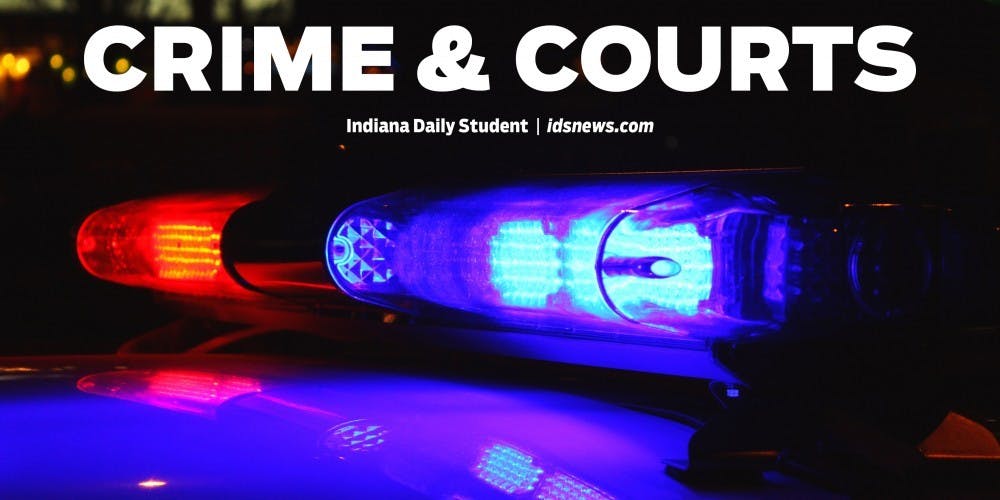Joseph Corcoran, a 49-year-old convicted of a 1997 quadruple murder, was executed shortly after midnight Wednesday. Corcoran is the first state prisoner to be executed since Indiana paused executions 15 years ago.
Corcoran was pronounced dead at 12.44 a.m., according to an Indiana Department of Corrections media release sent at 1 a.m.
According to the release, his last words were “Not really. Let’s get this over with.”
Seven inmates remain on death row in Indiana.
Indiana Attorney General Todd Rokita issued a statement on X shortly after the execution.
“My office fought to defend that sentence and state law every step of the way, and the Indiana Department of Corrections carried out professionally,” he wrote.
The last execution in Indiana was on Dec. 11, 2009, when the state executed Matthew Wrinkles. He was convicted of the murder of his estranged wife and two of her relatives.
Indiana is one of the 27 states where the death penalty is still legal. Although, the Federal Correctional Complex in Terre Haute, Indiana, Is where federal executions are carried out.
History of Corcoran’s case
Corcoran spent more than half of his life on death row at the Indiana State Prison in Michigan City. In 1999, Corcoran was convicted of killing his brother, his sister's fiancé and two other men in Allen County in 1997. He has been on death row since 1999.
In 1992, Corcoran was charged for the deaths of his parents, Jack and Kathryn Corcoran, who were found shot to death in their home. A jury acquitted him of the murders.
Corcoran has a long history of severe mental illness, and his attorneys have argued that his mental illness means he is not aware of why he is being put to death. During the trial, doctors diagnosed him with paranoid schizophrenia, a disorder that caused him to experience delusions and hallucinations. He was also diagnosed with depression and schizoid personality disorder.
This summer, Indiana Gov. Eric Holcomb and Attorney General Todd Rokita requested the state to set a date for Corcoran execution after Indiana acquired a drug for legal injections in June.
Indiana has not disclosed details how it acquired the drug, pentobarbital, its costs or where the state acquired it from. According to The Associated Press, when asked how the state obtained the pentobarbital, the Indiana Department of Correction referred to state law, which says the source of lethal injection drugs is confidential.
In November, Corcoran sent a letter to the high court saying he has no desire to pursue further appeals or litigation. He also wrote that he accepts and understands the punishment. Corcoran was unwilling to sign any paperwork that could have resulted in his removal from death row, according to the Indiana Capital Chronicle.
Corcoran’s attorneys took several last-minute court actions after the execution date was set. On Nov. 15, Corcoran's attorneys filed a stay of his December execution date. On Dec. 6, the Indiana Supreme Court, in a 3-2 decision, denied Corcoran's attorneys’ request to stay the execution.
Corcoran’s attorneys then turned to a federal district court in Northern Indiana and the court rejected Corcoran’s attorneys request to stop the execution due to his mental illness. His attorneys shortly after appealed the ruling to the U.S. Court of Appeals for the 7th Circuit. The Court of Appeals late Monday denied the motion to stay the death sentence.
Corcoran’s attorneys on Tuesday asked the U.S. Supreme Court to review his case and issue an emergency ruling to stop the execution. Late Tuesday night, the Supreme Court denied stay of execution and writ of certiorari.
The delay or overturn of Corcoran’s death was up to Gov. Eric Holcomb after federal judges rejected his attorney's request. Gov. Holcomb in a statement issued shortly after the execution wrote “His sentence has never been overturned and was carried out as ordered by the court,”.
Several individuals and organizations urged Gov. Holcomb to halt Corcoran’s execution. On Dec. 12, a delegation of faith leaders went to the Statehouse to hand deliver a letter to Holcomb urging him to halt executions in Indiana. Many national and state mental health organizations including National Alliance on Mental Illness and Mental Health America, also wrote a letter to Gov. Holcomb asking for clemency for Corcoran.
IU Department of Psychological and Brain Sciences Provost Professor William Hetrick wrote in an email to the Indiana Daily Student that mental health disciplines in the U.S. have taken clear positions opposing capital punishment and the death penalty.
“As a scholar of human behavior and mental conditions, including serious mental conditions such as schizophrenia spectrum disorders, I do not support capital punishment under any circumstances,” Hetrick wrote.
Indiana Abolition Center held a vigil outside of the prison Tuesday night according to an email from the IAC.
No media is allowed to witness state executions under Indiana Code which states only specific persons are allowed to attend, including a spiritual advisor, friends or relatives and prison officials.
According to a Death Penalty Action post on X, media organizations in Indiana signed and submitted a letter to Holcomb asking for transparency in executions.
Indiana Capital Chronicle reporter Casey Smith witnessed the execution after Corcoran added her to his witness list. Indiana is one of two states that does not allow media to witness executions. No other media were present.




